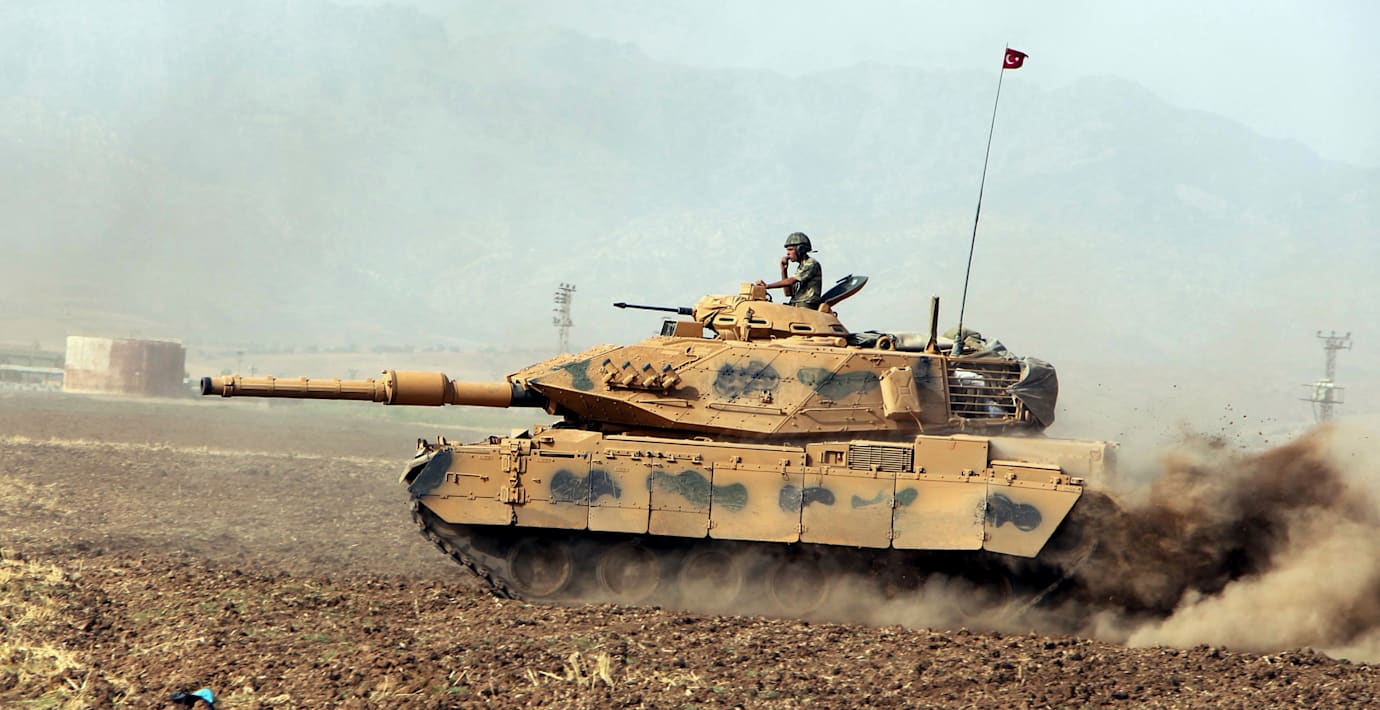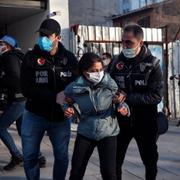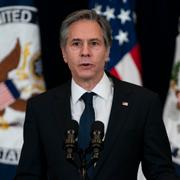
Turkiets militär: 80 döda i attack mot PKK
Turkiets militär säger att man har dödat över 80 människor i flygräder mot kurdiska ställningar i norra Irak, skriver TT. Attacken ska ha skett mot PKK-gerillan i måndags, men det finns inga oberoende bekräftelser på attacken.
En stor ammunitionsdepå och två pansrade fordon ska också ha förstörts i attacken, enligt militären.
bakgrund
PKK
Wikipedia (en)
The Kurdistan Workers' Party or PKK (Kurdish: Partiya Karkerên Kurdistanê) is an organization based in Turkey and Iraq. Since 1984 the PKK has been involved in an armed conflict with the Turkish state, with the initial aim of achieving an independent Kurdish state, later changing it to a demand for equal rights and Kurdish autonomy in Turkey.
The group was founded in 1978 in the village of Fis (near Lice) by a group of Kurdish students led by Abdullah Öcalan. The PKK's ideology was originally a fusion of revolutionary socialism and Kurdish nationalism, seeking the foundation of an independent, socialist state in the region, which was to be known as Kurdistan. The initial reason given by the PKK for this was the oppression of Kurds in Turkey. By then, the use of Kurdish language, dress, folklore, and names were banned in Kurdish-inhabited areas. The words "Kurds", "Kurdistan", or "Kurdish" were officially banned by the Turkish government. Following the military coup of 1980, the Kurdish language was officially prohibited in public and private life. Many who spoke, published, or sang in Kurdish were arrested and imprisoned. The PKK was then formed, as part of a growing discontent over the suppression of Turkey's ethnic Kurds, in an effort to establish linguistic, cultural, and political rights for Turkey's ethnic Kurdish minority.
Since the PKK's foundation, it has been involved in armed clashes with Turkish security forces. The full-scale insurgency, however, did not begin until 15 August 1984, when the PKK announced a Kurdish uprising. Since the conflict began, more than 40,000 have died, most of whom were Kurdish civilians. The European Court of Human Rights has condemned Turkey for thousands of human rights abuses. Many judgements are related to systematic executions of Kurdish civilians, torturing, forced displacements, destroyed villages, arbitrary arrests, murdered and disappeared Kurdish journalists, activists and politicians.
Since PKK leader Öcalan's capture and imprisonment in 1999, he has moved on from Marxism–Leninism, leading the party to adopt his new political platform of democratic confederalism while ceasing its official calls for the establishment of a fully independent country. In May 2007, former members of the PKK helped form the Kurdistan Communities Union (KCK), an umbrella organisation of Kurds from Turkey, Iran, Iraq, and Syria. In 2013, the PKK declared a ceasefire agreement and began slowly withdrawing its fighters to the Kurdistan Region of northern Iraq as part of the "solution process" between the Turkish state and the long-disenfranchised Kurdish minority. In July 2015, the PKK announced that a ceasefire was over and said that Ankara had welched on its promises regarding the Kurdish issue. In August 2015, the PKK announced that they would accept another ceasefire with Turkey only under United Nations or US guarantees.
The PKK is listed as a terrorist organization by several states and organizations, including the North Atlantic Treaty Organization (NATO), the United States and the European Union. However, the United Nations and countries such as Switzerland, China, India, Russia and Egypt have not designated the PKK as a terrorist organization.
Omni är politiskt obundna och oberoende. Vi strävar efter att ge fler perspektiv på nyheterna. Har du frågor eller synpunkter kring vår rapportering? Kontakta redaktionen


